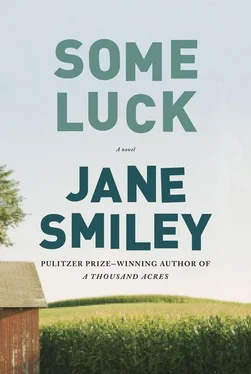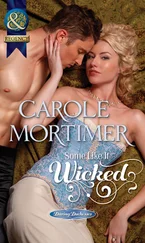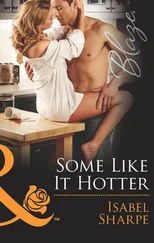The woman in the store was glad to sell the bicycle. She said, “Oh, it’s so nice when a young person has a chance to see the countryside, and this is a lovely Columbia, hardly used.” She smiled at Frank’s fifteen dollar bills, and held the door for him as he wheeled the thing out. She said, “Is your father—?” But Frank just pretended he had nothing to do with the car and got on the bicycle and rode it around the corner. It was harder than he’d thought it would be, but, then, the streets were paved, so it was easier in that way. In all this planning, he’d forgotten that he’d never actually ridden a bicycle.
It took about an hour, weaving and winding down the streets of Usherton, some a little busy and some nice and empty. He even waved — to Pastor Elmore as he passed their church. He heard Pastor Elmore’s shout following him. Back at the shop, he saw the sign on the window—“Closed for Lunch”—and he hurriedly opened the passenger door and slid the bike in, in front of the back seat, lifting the wheel a bit and twisting it so the thing would fit. Then he got in and drove home, which took a little longer because he was so excited that he kind of forgot how to shift and stalled out a couple of times. He did remember to buy some gas — he’d brought along a dollar for that. He got almost six gallons, which was pretty good, he thought, and would go some way toward pleasing Papa in spite of himself. He also put some air in the tires of the bicycle.
Well, they were waiting for him when he got home — turned out that Papa was only at Grandpa Otto’s for an hour or so, and Mama did remember seeing the car drive away, and Papa went over to the school to see if Frank was there. Maybe they were all sitting on the porch because it was a nice day, and maybe they were waiting to see what was going to happen. As he drove in, Papa stood up, came down the steps — he looked pretty mad, though he wasn’t undoing his belt. Without glancing at him, Frank went smartly around the back of the car, opened the door, and eased the bicycle out. He heard Joey say, “Oh boy!”
Papa met him and the bicycle at the edge of the grass. He snapped, “What’s that?”
“It’s a Columbia Cruiser. I think it’s about a year old, not much more.…”
“How did you get it?”
“Well, I took some of my rabbit-skin money, and I bought it for riding to the high school. I estimate I can get there in a half-hour or less, faster than the hack.…” His voice was getting too quick. He glanced at Papa.
“Who gave you permission to take the car?”
“No one.”
Mama had Henry on her hip, standing on the top step of the porch, and Frank knew what to do — he smiled at her. And then she said, “You’re always talking about enterprising, Walter. That’s enterprising.”
He made his voice level and businesslike. “I can start high school in the fall and graduate when I’m seventeen.” Then, “I put a dollar’s worth of gas in the car.”
Walter said, “Oh, good Lord. Well, your punishment is to wash the car, inside and out — got me?”
Frank knew he could get Joey to help.
“Thank the Lord you’re back safe,” said Rosanna. “My heart was in my throat.” But she couldn’t hide that she was pleased.
ONE DAY at the end of August, Papa came home from the county agent’s office in Usherton and said, “I guess we’re going to buy a tractor.” Joe hadn’t seen a smile on Papa’s face in a long time — not even during the oat harvest, even though the crop looked pretty good — and Joe had heard him say to Mama, “Five years ago, I knew I could sell the oats for a bit more than I put into growing them, but if I fed them to the hogs and the cattle, the animals turned those oats into real money, and I have to say, I thought I knew what I was doing. But now I can’t get six cents on the dollar for what I put into them, and hog and cattle prices are so low that, the more oats that pass through the animals, the less they are worth. I don’t know which end is up anymore.”
And Mama said, “Did you hear that the Larsens are heading to California?”
“Up past Denby there?”
“They shouldn’t have bought that tractor. I don’t know what got into their heads.”
But then there was a law — Roosevelt got it passed — Papa got money for not planting half the corn crop. “And why should I plant it?” said Papa. “Forty-two bushels per acre, but only seventeen cents a bushel — what’s the difference between that and nine bushels an acre at eighty-five cents a bushel? Exactly none, except that those forty-two bushels cost the soil something. So, next year, I’m planting clover on half of it and then plowing it under.”
The day when Papa and Frank went off to get the tractor was the day when Eloise came for a visit with her husband and her new baby. Joe was carrying water to the sheep (down to four now) when he saw the car drive in, a Plymouth with a rumble seat. It was a beautiful car, and when Eloise got out of the passenger side with the baby in her arms, and a tall, thin man got out of the driver’s side, Joe ran to the well and washed his hands and face under the pump. By the time he got inside, Eloise and the man were sitting on the sofa and Mama was in her rocking chair with Henry on her knee. Lillian was cooing over the baby, who looked just like the man, Joe thought, if that was possible in a baby.
Mama said, “Joey, look who’s here! Eloise has a baby girl named—”
“Rosa!” cried Lillian. “She’s five months old. Guess what! She was born on your birthday!”
“Yup,” said Eloise. “March 13.”
The man had his hands on his knees, and he was looking around.
Eloise said, “Rosa Sylvia Silber. I plan for her to be a heroine of the people. Joey, this is Mr. Silber. He’s my husband. Your uncle Julius.”
Joe did what he had been told to do, which was to look Mr. Silber straight in the eye and hold out his right hand to be shaken, then say, “How do you do, Mr. Silber?”
The man said, “Pleased to meet you, Joe.” His accent was musical, his hand enormous, but long and thin. He had nice fingernails.
Mama said, “Mr. Silber is a writer. He writes things for a living.”
“I do, too,” said Eloise.
“Well, I—” began Mama.
Lillian held her arms out for the baby, and the baby held her arms out for Lillian. Rosanna gave her first good smile that Joe had seen. Eloise hesitated for a moment, then let Lillian take the baby. Lillian, as always, did a good job and was stronger than she looked. She put one arm under Rosa’s backside and another around her waist and held her close. Mama said, “Lillian is a real little mother. Must come from Walter’s side.”
Eloise laughed.
Joe said, “Papa’s buying a tractor today.”
“Indeed,” said Mr. Silber. He looked around.
“Yes,” said Mama. “He got a check from the Agricultural Adjustment Act. And then there was a family who went to California. He got it much more cheaply than he might have.”
Mr. Silber said, “We read about the Farmers’ Holiday Association.”
“Oh,” said Mama, “Walter can’t stand them. They torpedoed a train.”
“That’s just a rumor,” said Mr. Silber. “But they’ve accomplished a few things that needed to get done. Farmers need to understand that they are workers, too. They have more in common with other laborers than with great landowners.”
Joe liked hearing Mr. Silber speak.
“Maybe so,” said Mama. “Maybe so. Maybe so. Care for some lemonade? Hot day.”
Mr. Silber leaned forward. “Solidarity is the most important thing. The bosses and the bankers have it. We have to have it, too.”
Mama’s face hardened. She said, brightly, “I’m sorry. I would have to disagree. The most important thing is getting right with the Lord, and then he will provide.” She cleared her throat. “As with the new tractor, for example.”
Читать дальше












